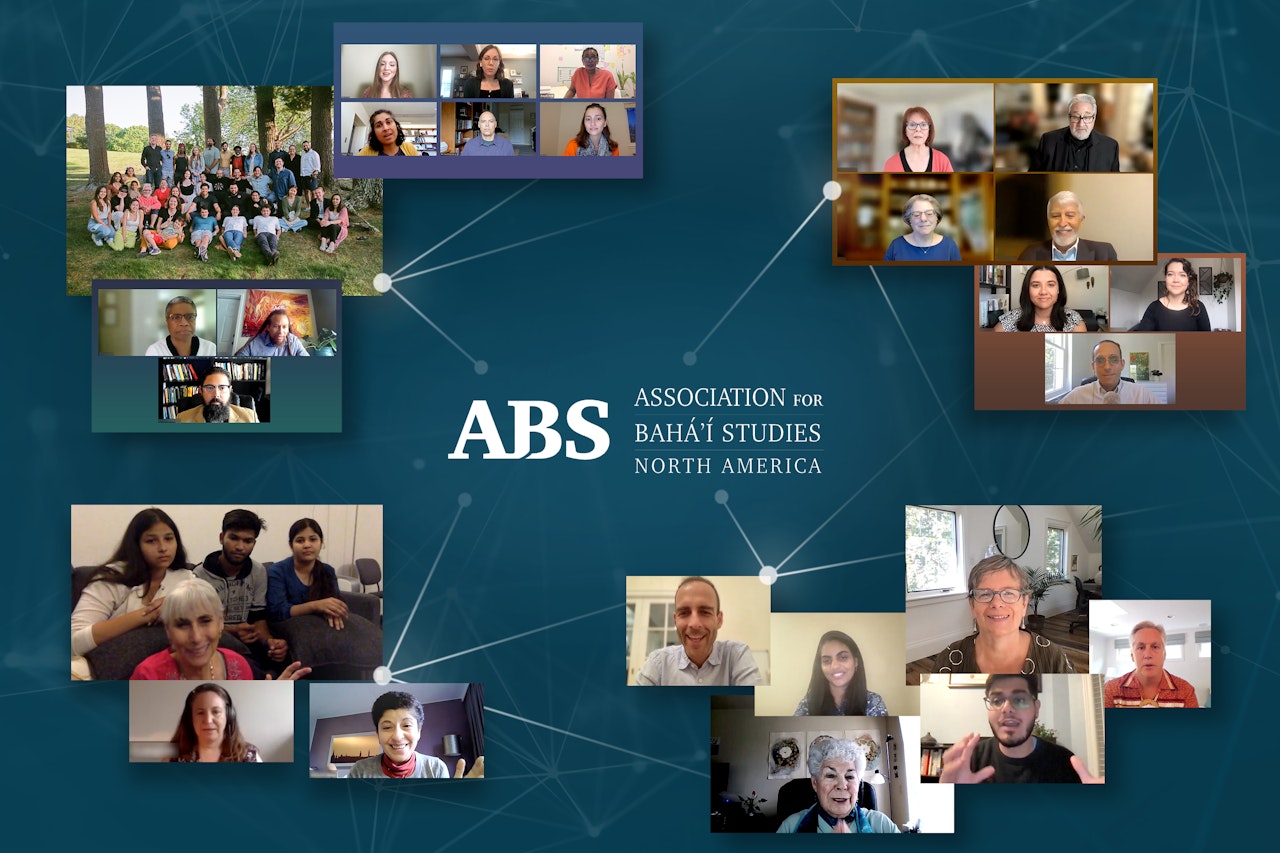Bahá’í studies
“Reading groups” enrich annual ABS conference
The annual ABS conference was enriched this year by insights from a growing number of reading groups exploring questions in various fields in light of Bahá’í principles.

The annual ABS conference was enriched this year by insights from a growing number of reading groups exploring questions in various fields in light of Bahá’í principles.

OTTAWA, Canada — The Association for Bahá’í Studies (ABS) recently held its 46th annual conference, bringing together over 1000 people from over 30 countries. The conference, which was once again held online this year, enabled participants to reflect on their efforts to contribute insights from the Bahá’í teachings to various areas of thought and discourses essential to the progress of humanity.
Presentations and interactive sessions during this year’s three-day gathering were particularly enriched by discussions in a growing number of collaborative initiatives, including “reading groups”, that meet throughout the year and are each focused on a topic such as education, economics, climate change, dynamics of social change, the harmony of science and religion, justice and reconciliation, law, media, public health, and urban planning.
Todd Smith, the secretary of the ABS executive committee, says: “These groups—some discipline-specific and some multidisciplinary—open opportunities for people to explore the deeper questions and concerns in their fields in light of spiritual principles, seeking new insights into the needs of humanity at this time.”
The reading groups were born out of a question before the ABS about how the principle of consultation can be applied in various contexts to facilitate the generation of knowledge. Selvi Adaikkalam Zabihi, who helps coordinate collaborative initiatives for ABS, says: “The Association is learning practically about Baháʼu’lláh’s statement that ‘the maturity of the gift of understanding is made manifest through consultation.’”
Ms. Adaikkalam Zabihi explains that new reading groups form when people are inspired to undertake a focused exploration of a discourse related to their field.
Eric Farr, who also assists with coordinating collaborative initiatives, says that the “groups typically identify an initial reading list of relevant literature, which can be expanded and refined over time. As participants of a group review these materials together, they try to understand the underlying assumptions, central concepts, and highest aspirations within a discourse that have shaped thought and practice in their fields, correlating them with the Bahá’í teachings.”
Ms. Adaikkalam Zabihi adds: “The growing experience in Bahá’í community-building initiatives and social action, as well as the essential Bahá’í teachings and principles, also shed light on these questions.”
The Association is learning that the relationship between the conference and these small group settings form a virtuous circle: the more dynamic the discussions at an annual conference, the more reading groups are enriched and the more new groups are formed—the more insights there are to inform presentations and forums at future conferences.
Dr. Smith says: “Many of the presentations in this year’s program were the fruit of collective learning initiatives, such as reading groups or thematic seminars, that took place in the months between the 2021 and 2022 conferences. The program was further enhanced by the contributions of presenters engaged in other academic and professional endeavors.”
Presentations and supplementary materials from this year’s conference program, along with an archive of presentations from previous years are now available at the website of the Association for Bahá’í Studies.